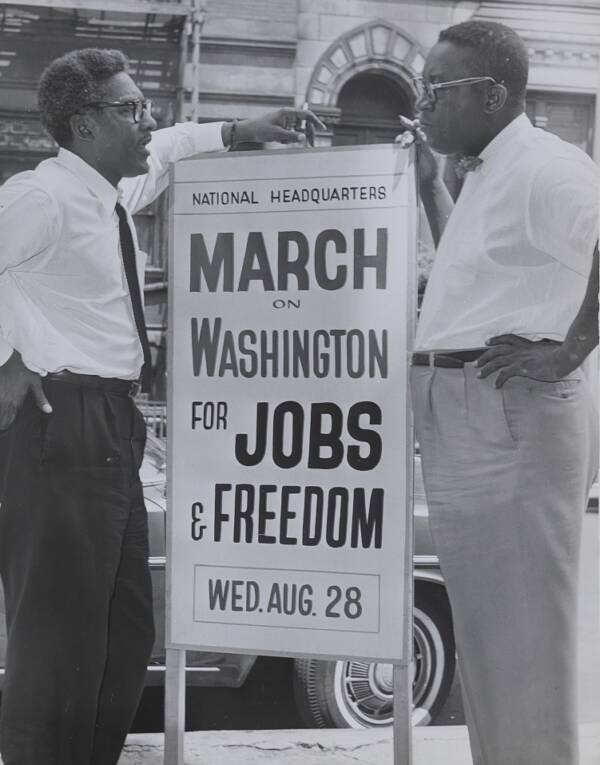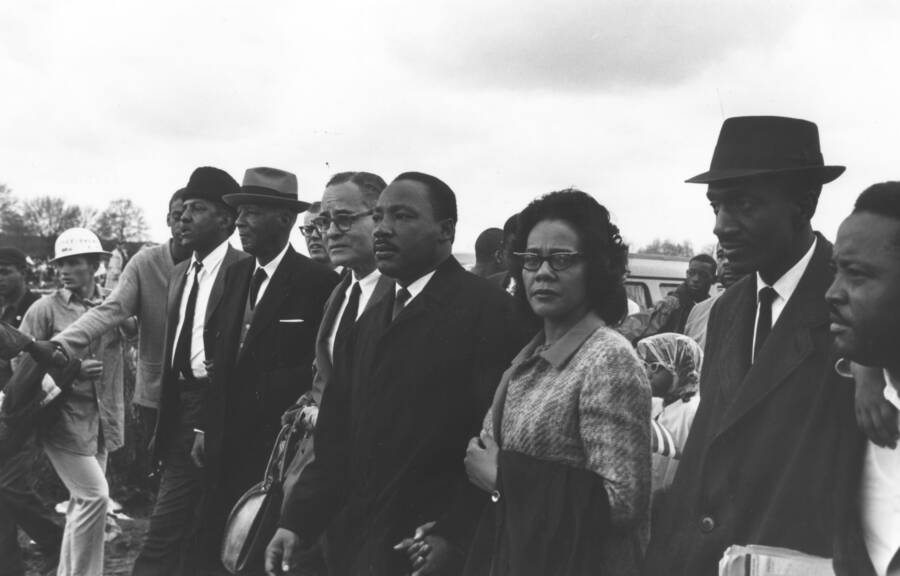Bayard Rustin: The Gay Organizer Behind The ‘March On Washington’

Library of Congress, Prints and Photographs DivisionCivil rights leader Bayard Rustin, left, at the March on Washington in 1963.
The 1963 March on Washington stands as one of the shining moments of the civil rights movement. But it might not have happened without a gay activist named Bayard Rustin.
Rustin had long envisioned a grand march on the nation’s capital. In 1941, he joined A. Philip Randolph and A.J. Muste to draw up plans for a “March on Washington” to protest against segregation in the defense industry. Alarmed at the prospect, President Franklin Roosevelt bowed to their demands.
Though that march didn’t happen, Rustin spent the next two decades sculpting the civil rights movement from behind the scenes. A Quaker who had traveled to India to learn about Mahatma Gandhi, Rustin urged Martin Luther King Jr. and other activists to embrace pacifism.
“Dr. King had read Gandhi, but at that point he hadn’t accepted pacifism as a way of life,” explained Michael G. Long, a historian who has studied Rustin’s life. “And so when Rustin arrived in Montgomery, Dr. King’s home was full of guns.
“It was Bayard Rustin, and a few other pacifists, who really encouraged Dr. King to accept pacifism as a way of life.”

William Lovelace/Daily Express/Hulton Archive/Getty ImagesBayard Rustin, far left in a black hat, marches shoulder to shoulder with Martin Luther King Jr. during a march in Selma, Alabama.
Despite Rustin’s influence on the movement, many Black leaders were uncomfortable with his sexual orientation. In 1960, Black congressman Adam Clayton Powell Jr. even threatened to tell the press that Rustin and King were lovers, leading to Rustin’s resignation from SCLC.
But as Randolph began to envision plans for another march on Washington, he reached out to his former collaborator. Rustin agreed to help, and they got to work.
According to Long, Rustin organized the entire event in eight weeks. Though civil rights leaders balked at putting Rustin in charge — they opted for Randolph instead — Rustin worked tirelessly behind the scenes to pull the march together.
As the event approached, some lawmakers looked to derail it. Senator Strom Thurmond called Rustin “Mr. March-On-Washington” on the floor of the Senate and labeled him a “sex pervert.”
This time, however, other civil rights leaders came to Rustin’s defense. The March on Washington went off without a hitch, although Rustin did not join civil rights leaders at the White House in its aftermath.
“Bayard Rustin lived and worked in the deepest shadows,” explained African-American history professor Henry Louis Gates Jr. “[But] I ask that if you teach your children one new name from the heroes of black history, please let it be Bayard Rustin.”





